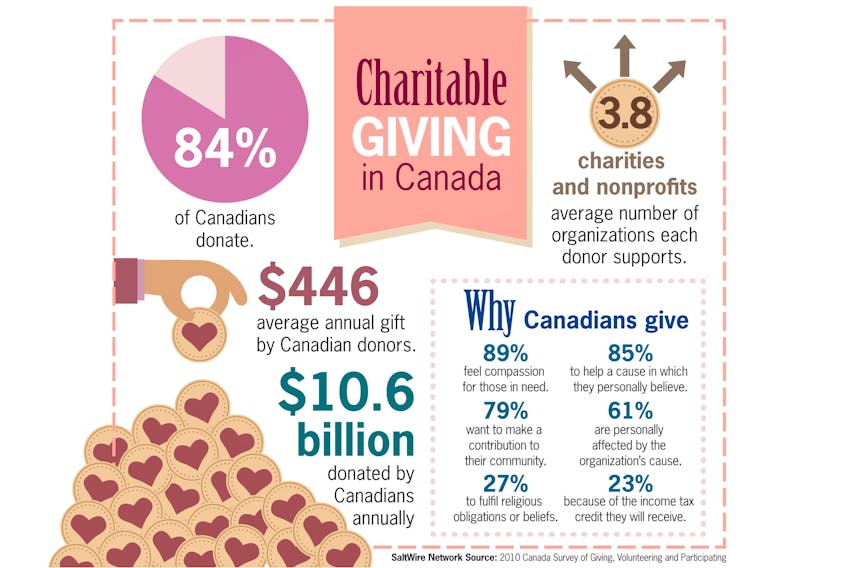It started with an incessant thirst and increasingly frequent bathroom breaks. Then, the 17-year-old high school athlete started losing weight.
He grew weak.
Despite his healthy, soccer player lifestyle, something was clearly wrong. His parents – who asked that his identity be kept secret to protect his privacy – took their son to a leading children’s hospital in Canada.
There, doctors delivered their diagnosis.
Diabetes. Type 1, so-called juvenile diabetes.
The teen’s pancreas was no longer producing insulin, a hormone needed to move sugar into his body’s cells where it was used for fuel. Even though he could expect to live and be healthy with treatment, he would have to take insulin and monitor his blood sugar for the rest of his life.
Or until a cure is found.
Seven years later, his mother is still praying for that cure for her son, now a varsity athlete at an Ontario university.
And she donates to several non-profits associations which fund research to find that cure that will, hopefully, one day see her son freed of this metabolic disease.
She’s not alone.
Canadians give an astounding $10.6 billion to charities every year, says Bruce MacDonald, president and chief executive officer of Imagine Canada, a national non-profit that helps other charities get the resources they need.
In 2015, the most recent year for which figures are available, the average Canadian family claimed $1,820 in donations to charities on their income tax returns, according to a report by the donating and fundraising website CanadaHelps.
That report, dubbed The Giving Report, was released in November 2017 and revealed Atlantic Canadians households claim a lower level of charitable giving on their tax returns than the average for families in the rest of the country.
The most generous people in Atlantic Canada in the five years from 2011 through to 2015 were New Brunswickers who gave an average of almost $1,434 per family to charity. Islanders were next, with slightly more than $1,404 given to charity per family. Newfoundland families in St. John’s gave an average of almost $1,133 annually during those years and Nova Scotian households provided charities with an annual average of about $1,388.
In Atlantic Canada, families in bigger, urban cores tended to give more than those in rural areas. In Fredericton, for example, the average annual donation to charity was almost $1,761. In largely rural Cape Breton, the average donation per family was about $972 during those years.
Since The Giving Report only tracked donations to charities that were claimed on tax returns, officials at CanadaHelps admit it doesn’t measure acts of generosity for which there were no tax receipts, such as helping out a friend in need with a few dollars or some groceries or stepping up with a load of wood to help a family rebuild their home after a fire. The Giving Report also didn’t track the change given to panhandlers or tossed into the Salvation Army kettle or collection plate at church.
Atlantic Canadians do a lot of that too.
But the CanadaHelps report does cover enough of the charitable sector to paint a picture and reveal several major trends.
Perhaps the most alarming of those trends is that charitable giving seems to be becoming less common with $9.1 billion donated in 2015, leaving many smaller non-profits, who rely on donations for a bigger chunk of their revenues than the larger players, scrambling for funds.
“When inflation is taken into account, giving has gone down by about seven per cent, or $600 million (in the decade from 2006 through to 2015),” said Marina Glogovac, president and chief executive officer of CanadaHelps.
“The donor pool in Canada overall is shrinking, the (retirees) and Baby Boomers,” she said. “We’re not seeing Millennials and the younger generations getting as involved.”
The top executive at CanadaHelps says there’s just not enough data yet for non-profits to know exactly why giving to charity seems to be on the wane in this country.
It could be Canada’s changing demographics, a generational shift, a less-secure job market, differences in spending priorities between working men and women, or even the drop in religious practice throughout the country.
The apparent drop in charitable giving, though, could also just be a reflection of the rise of new, technological ways to give which sometimes do not produce tax receipts for donors.
Meet crowdfunding.
On the web, there are several sites that offer up platforms for individuals or organizations to make a pitch or throw out a plea for funding. Start-up businesses looking for capital to launch a new product while drumming up pre-sales will often turn to these crowdfunding sites. Registered charities use them to create a buzz and bring in much-needed fundraising dollars.
But crowdfunding websites also carry many pleas for causes where an apparent Good Samaritan is trying to help an individual, family or neighbourhood on their own.
There are no tax receipts for many of those fundraising campaigns and much of the oversight that is part and parcel of established and registered charities goes right out the window.
“Crowdfunding, that’s the Wild West of charitable giving,” says MacDonald. “Someone’s house might have burnt down and someone sets up a crowdfunding page. If you give $25 to that cause, there is no way for you to know how they used that $25.”
While some crowdfunding campaigns go nowhere, others capture the public’s imagination, become viral sensations and produce amazing levels of contributions.
In 2017, Johnny Bobbitt Jr., a man reportedly living under a bridge in Philadelphia, apparently used his last $20 to buy gasoline and bring it to stranded motorist Kate McClure on an interstate highway. Or so goes the story, which appeared on a www.gofundme.com, a crowdfunding campaign was started to raise money to help this homeless man get a place of his own.
By the time that campaign closed in November, it had raised almost US$403,000 for Bobbitt.
That’s great for Bobbitt. It doesn’t do much to tackle the bigger problem of homelessness, though, and so some in the non-profit sector are less than enthused by emotion-driven crowdfunding appeals.
“We’re not going to solve homelessness this way,” said Glogovac. “I don’t like it. It’s very impulsive. Me, I would prefer trying to solve the problem for everyone.”
There are also the crowdfunding fees. In Canada, Gofundme takes 7.9 per cent of the amount raised for each campaign plus an additional 30 cents per donation, making the costs of going with this platform only slightly less than the comparable administrative costs of major, registered charities.
That spending on the running of charities is a major bone of contention for many Canadians. A study done by Imagine Canada and the Muttart Foundation in 2013 showed that 73 per cent of Canadians think charities spend too much on administration and fundraising. The Giving Report pegs that spending by charities at an average of nine per cent of revenues for management and administration and one per cent for fundraising.
The bottom line when trying to choose a charity to support, say the experts, is to look at more than their administration costs.
The biggest bang for the buck when donating to Canadian charities is to give them appreciated shares in a company and save on paying the capital gains tax. In Canada, investors pay the percentage charged to them for their income bracket on half of the increase in the value or their shares when these are sold.
By donating the shares directly to a charity, though, an investor can get a tax receipt on the full, appreciated value of the stock.
According to Glogovac, it’s the most efficient and tax-smart way to donate to a charity.
“The charity receives a larger donation," she said. "And you as the donor receive a larger tax receipt."









